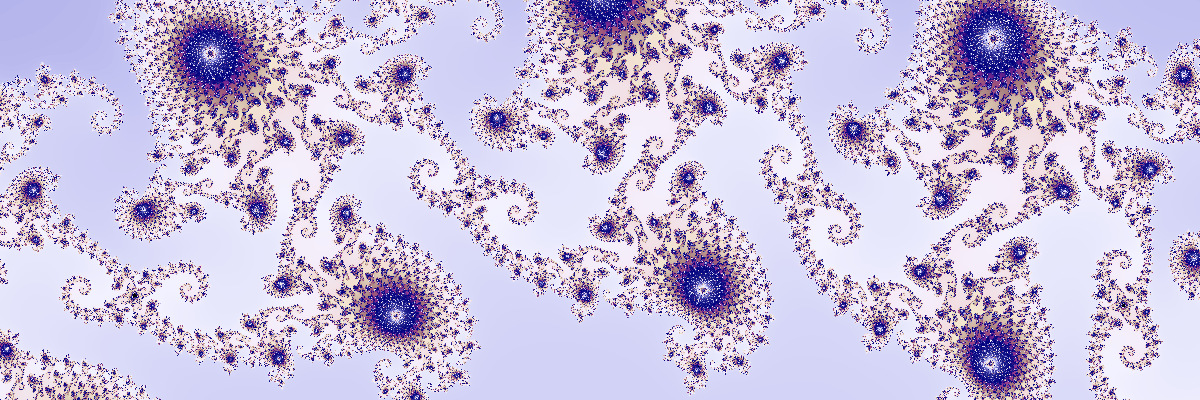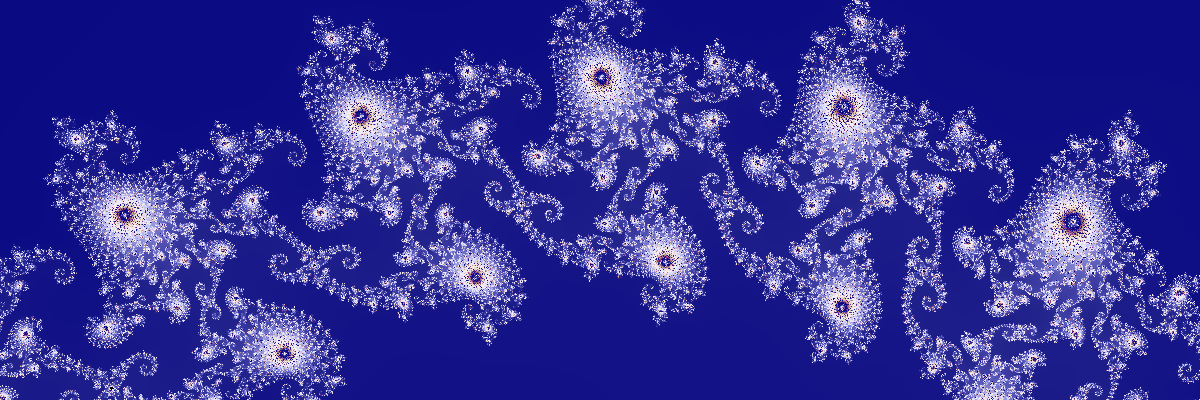Date & Time:
- Wed May 14, 8-10am Eastern time /
- Wed May 14, 2-4pm Germany time /
- Thu May 14, 8-10pm China time /
- Thu May 14, 9-11pm Japan time
Speaker 1: Mikhail Hlushchanka (University of Amsterdam, Netherlands)
Title: The independence polynomial on recursive graph sequences - the dynamical perspective
Abstract: The distribution of the zeros of partition functions on graphs are intimately related to the analyticity of physical quantities and their phase transitions. In their pioneering work in the 1950s, Lee and Yang proved that the free energy per site of the cubic lattice is analytic at a given positive real parameter, provided that the complex zeros of the partition functions for a sequence of finite graphs converging to the lattice avoid a neighborhood of this parameter.
In the last decade, a special focus was put on graph sequences that do not converge to a regular lattice but are instead defined recursively. Examples of such recursive graph sequences include hierarchical lattices, Cayley trees, Sierpiจฝski gasket graphs, and various self-similar Schreier graphs. Significant progress has been made in studying the partition functions of the Ising, Potts, and Hard-Core models on these graphs (with the latter two corresponding to the chromatic and independence graph polynomials, respectively). One main advantage of working with recursive sequences of graphs is that the underlying recursion naturally induces an iterative system on the level of partition functions, often given in terms of rational maps in one or several (complex) variables. By analyzing the dynamical behavior of these iterative systems, we can gain insights into the properties of the respective graph polynomials, such as phase transitions and computational complexity.
In our current work with Han Peters (University of Amsterdam), we attempt to establish a unified framework for recursive graph sequences in the Hard-Core model setting. We start with an arbitrary graph with k marked vertices. At each recursive step, we construct a new graph by taking n copies of the previous graph and connecting these copies along the marked vertices (according to a specified rule). The dynamical systems that emerge from the respective independence polynomials are represented by homogeneous polynomials of degree n in 2^k variables. Somewhat surprisingly, it turns out that these systems can be successfully analyzed in this general context. In the talk, I will report on our results on the structure of the zero sets of the independence polynomials for these recursive graph sequences, particularly highlighting the absence of phase transitions.
Speaker 2: Enrique Pujals (City University of New York, US)
Title: Henon like Renormalization
Abstract: I will present the renormalization theory of non-perturbative dissipative H\'enon-like maps (meaning that they are not necessary close to 1-d dynamics) developed jointly with S. Crovisier, M. Lyubich and J. Yang, which enables us to establish a priori bounds and control the small-scale geometry of dynamics.
Date & Time:
- Wed Apr 9, 5-7pm Pacific time /
- Wed Apr 9, 8-10pm Eastern time /
- Thu Apr 10, 8-10am China time /
- Thu Apr 10, 9-11am Japan time
Speaker 1: Dragomir Saric (City University of New York, USA)
Title: Harmonic functions, finite-area holomorphic quadratic differentials and classification of infinite Riemann surface
Abstract: An infinite Riemann surface is closest to a compact Riemann surface if it does not support a Green’s function. This condition is equivalent to the ergodicity of the geodesic flow as well as the transience of the Brownian motion. We give another characterization of this class of Riemann surfaces using the space of holomorphic quadratic differentials and prove that the set of holomorphic quadratic differentials with single cylinders is dense among all holomorphic quadratic differentials.
It is well known that the class of Riemann surfaces without Green’s function is invariant under quasiconformal mappings. A class of Riemann surfaces without non-constant harmonic functions with finite Dirichlet integral properly contains the class of surfaces without Green’s function. We prove that the larger class is also invariant under quasiconformal mappings. The classes of Riemann surfaces that satisfy the (strong) Liouville property are sandwiched between the above two classes, and it is known that the (strong) Liouville property is not a quasiconformal invariant.
Speaker 2: Vladimir Markovic (Tsinghua University, China)
Title: Teichmuller flow and Caratheodory metrics on Moduli Spaces
Abstract: In this talk I will explain my results that the Caratheodory and Teichmuller metrics do not agree on Teichmueller spaces, and the proof of the convexity conjecture of Siu. Moreover, I will illustrate how deep theorems in Teichmuller dynamics play an important role in classifying Teichmuller discs where the two metrics agree.
Date & Time:
- Tue Mar 11, 5-7pm Pacific time /
- Tue Mar 11, 8-10pm Eastern time /
- Wed Mar 12, 9-11am China time /
- Wed Mar 12, 10am-12pm Japan time
Speaker 1: Hao Wu (Tsinghua University, China)
Title: Connection probabilities for loop O(n) models and BPZ equations
Abstract: Critical loop O(n) models are conjectured to be conformally invariant in the scaling limit. In this talk, we focus on connection probabilities for loop O(n) models in polygons. Such probabilities can be predicted using two families of solutions to Belavin-Polyakov-Zamolodchikov
(BPZ) equations: Coulomb gas integrals and SLE pure partition functions. The conjecture is proved to be true for the critical Ising model, FK-Ising model, percolation, and uniform spanning tree.
Speaker 2: Yuan Zhou (Beijing Normal University, China)
Title: Jacobian determinants for nonlinear gradient of planar p-harmonic and $\infty$-harmonic functions
Abstract: In dimension 2, we introduce a distributional Jacobian determinant for the nonlinear complex gradient $V_\beta(Dv)$ of a function $v\in W^{1,2 }_\loc$ with $\beta |Dv|^{1+\beta}\in W^{1,2}_\loc$, where $\beta>-1$. This is new when $\beta\ne0$.
Given any planar $\infty$-harmonic function $u$, we show that such distributional Jacobian determinant $\det DV_\beta(Du)$ is a nonnegative Radon measure with some quantitative local lower and upper bounds.
Denoting by $u_p$ the $p$-harmonic function having the same nonconstant boundary condition as $u$, we show that $\det DV_\beta(Du_p) \to \det DV_\beta(Du)$ as $p\to\infty$ in the weak-$\star$ sense in the space of Radon measure.
Recall that $V_\beta(Du_p)$ is always quasiregular mappings, but $V_\beta(Du)$ is not in general.
Date & Time:
- Mon Feb 10, 6-8pm Pacific time /
- Mon Feb 10, 9-11pm Eastern time /
- Tue Feb 11, 10am-12pm China time /
- Tue Feb 11, 11am-1pm Japan time
Speaker 1: Alex Kapiamba (Harvard University, USA)
Title: A priori bounds for some near-parabolic primitive combinatorics
Abstract: The local connectivity of the Mandelbrot set (MLC) is a long outstanding conjecture in complex dynamics. Nearly twenty years ago, Kahn and Lyubich established MLC for all “definitely primitive” combinatorics. In this talk we will discuss MLC for some primitive combinatorics which accumulate on parabolic parameters in the Mandelbrot set. Based on joint work with Jeremy Kahn.
Speaker 2: Yan Mary He (Oklahoma University, USA)
Title: Geometry of polynomial shift locus and the space of trees
Abstract: The degree d \ge 2 shift locus S_d consists of affine conjugacy classes of complex polynomials whose critical points all escape to infinity under iterations of the polynomial. We relate generic points in the shift locus S_d to metric graphs. Using thermodynamic metrics on the space of metric graphs/Culler-Vogtmann outer space, we obtain a distance function on S_d. We show that S_d is incomplete if and only if d \ge 3 and the metric completion contains a subset homeomorphic to the space of trees PST_d^* introduced by DeMarco-Pilgrim. This is joint work with Hongming Nie.

